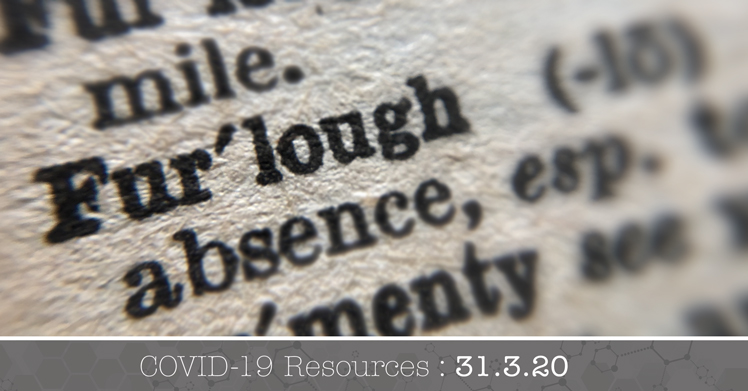Up until recently the word ‘furlough’ had barely, if at all, registered with most of us.
Now it seems as if it is one of the most talked about topics in dentistry thanks to Covid-19 and the impact it is having on the way practices are operating.
But what exactly is furlough and what does it mean for you?
What is furlough?
The dictionary definition is a ‘leave of absence’ in relation to workers. A furloughed worker in this instance does not go to work but is still retained by the company.
Since the outbreak of Coronavirus and ensuing UK-wide lockdown, many businesses that have had to close or significantly reduce their services, including dental practices, have furloughed at least some of their workers.
If you are a practice owner and decide to furlough your staff, you can do so with immediate notice. Ideally you would speak to them about this and then follow-up in writing, if it’s not possible to speak to them you should still write to them. You can download a template letter here.
Will those furloughed because of Covid-19 still be paid?
The Government has launched the Coronavirus Job Retention Scheme which allows any employer to obtain a grant to cover 80% of the salary of employees who would have been otherwise laid off, up to a total of £2,500 per month for each retained employee.
This scheme is in place until June (assuming it is not extended in the future) and is backdated to 1st March 2020.
Some employers may choose to cover the remaining 20% of their workers’ salaries, but this is not obligatory.
Who can be furloughed?
All members of the dental team who are employed or have worker status (i.e. associates, nurses, hygienists, etc) can be furloughed, with the exception of the Managing Director of limited companies, unless that company ceases to exist. This is because there will still be work for the Managing Director during this period of time.
Can furloughed workers still work?
Furloughed workers cannot carry out work for the dental practice. However, there is nothing in the current government guidance that forbids them to work elsewhere, such as supermarkets to top-up the 80% they may receive from the Government. Although it is envisaged this may change. It should be noted that workers can undertake voluntary work.
It is worth checking whether there is a clause in your employment contract that says you need permission from your existing employer to do so.
How are self-employed associates impacted?
For self-employed staff using the job retention scheme, they can get 80% of the average of the last three years monthly payments, as long as they don’t have more than £50,000 in trading profits. You must have also submitted a 2019 tax return.
How does furloughing differ for NHS, mixed and private practices?
To receive your payment from the NHS you need to be paying your staff as you always have done, which is fine if you have a large NHS contract.
If you have a small NHS contract or are a 50/50 mixed practice, the NHS payment you receive probably isn’t going to be enough to just continue paying your staff as you have been doing, and cover the costs of your outgoings.
Some dentists with a small NHS contract have taken the decision that they are better off furloughing their staff and taking part in the Coronavirus Job Retention Scheme and taking whatever sanction may come from the NHS, alongside not being paid by them. We don’t yet know what these sanctions might be.
For private dentists, furloughing your staff can help with cash flow and staff still receive 80% of their wages, rather than being laid off.
Do furloughed workers still accrue holidays?
Yes, you will still accrue annual leave as normal even if you are furloughed. After things return to normal employers will need to consider how this leave is taken in order to accommodate workload and whether holidays can be carried over to the following two years.
What happens if you are on maternity leave?
If you are on maternity leave and were due to start back at work during a period when colleagues are being put on furlough, you can also be furloughed. In this instance you would receive 80% of whatever hours you would have been working when you returned.
If you are currently on maternity leave and not due back during the period covered by the Coronavirus Job Retention Scheme (currently until the end of June), you cannot be furloughed.
Pregnant employees can be furloughed, although they probably shouldn’t be at work for health and safety reasons and should be suspended on full pay anyway.
*The information in this article was provided by Sarah Buxton, an employment law and HR solicitor, and is correct at the time of publication.
Practice Plan Group is holding free webinars with Sarah Buxton for dentists to learn more and with the opportunity to ask her questions. You can find out more about these webinars as well as access regular updates from FTA Law, where Sarah is a director, and other resources via Practice Plan Group’s Coronavirus Resource Page.
